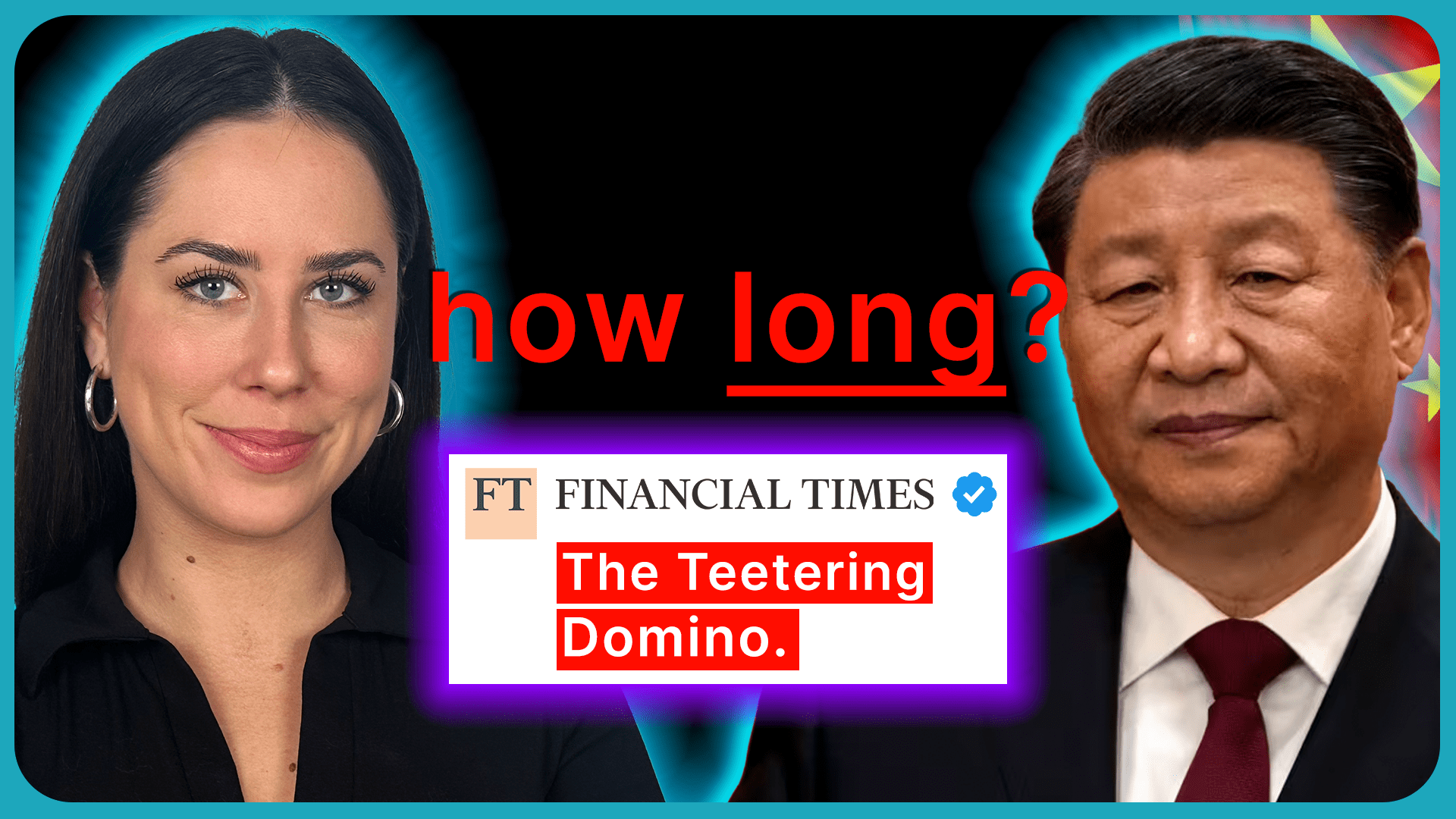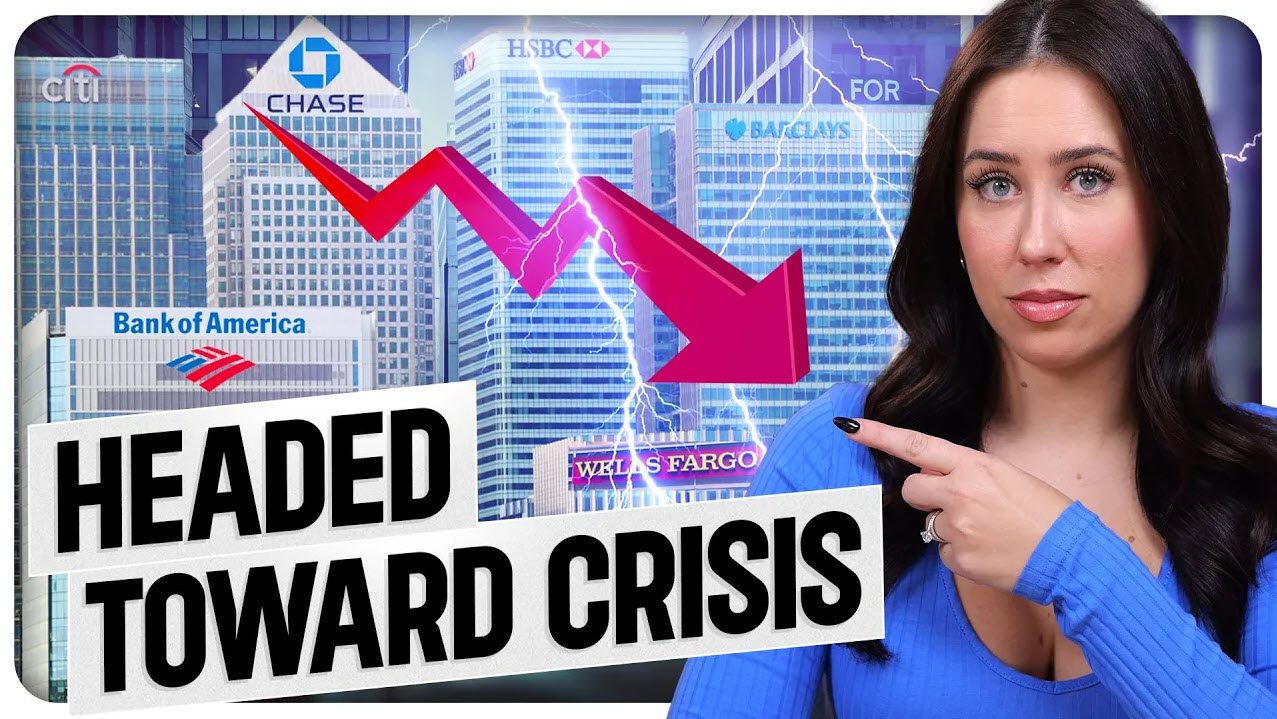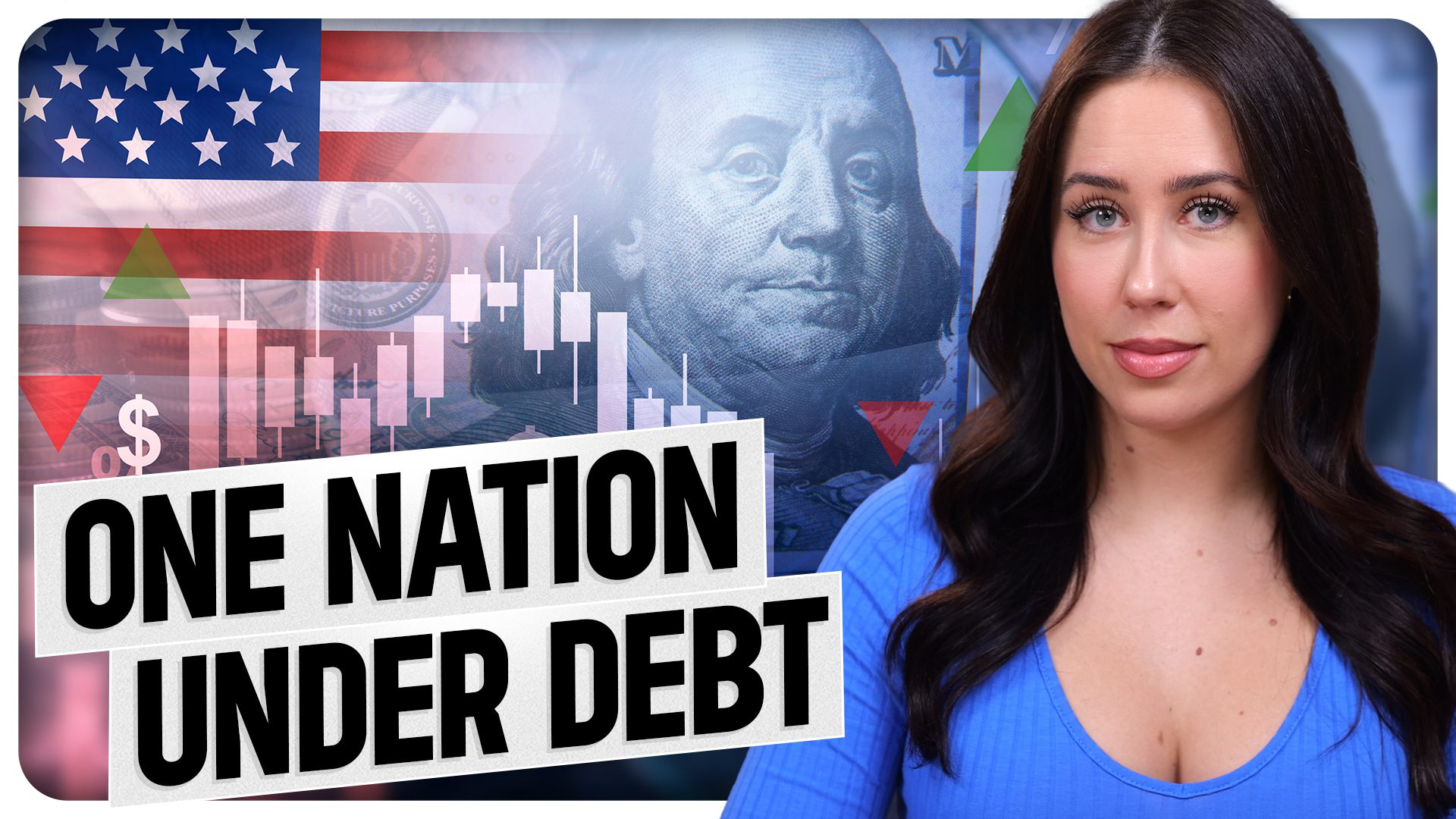EVERGRANDE: Does the Great Taking Start in China?

On this week’s episode of Taylor Made Economics, Taylor Kenney dives into the global economic turmoil triggered by Evergrande’s monumental collapse. 🏰 In this must-watch video, Taylor focuses on the two critical topics reshaping history: the imminent implosion of China’s housing market and the potential initiation of the greatest wealth transfer ever seen!
CHAPTERS:
0:00 The Collapse of Evergrande
01:16 Real Estate Ponzi Scheme Reveal
03:34 LGFV’s
04:49 The Three Red Guidelines
07:27 The Great Taking
TRANSCRIPT FROM VIDEO:
Evergrande, a Chinese real estate giant, has fallen this week following a Hong Kong court order to liquidate over $300 billion dollars of assets to settle their debts. But make no mistake about it, this is not just a Chinese catastrophe. The incoming collapse of China’s housing market represent a significant step forward in what could be the greatest transfer of wealth in history. I’m Taylor Kenney with ITM Trading and this is Taylor Made Economics.
Following Evergrande’s multi-year failure to come up with a debt restructuring plan, a Hong Kong judge officially said enough is enough and ruled that they had to liquidate their assets. While it might seem that the economic fallout from one of the largest property developers would be bad enough on its own, there are actually much larger concerns that this is the beginning implementation of a long planned and expertly executed taking or transfer of wealth.
We will break down exactly how Evergrande would assist in this transfer and ultimately shepherd in a reset. But first, it’s important to understand what Evergrande represents and how this Ponzi scheme got so out of control. Thanks to massive over-borrowing and overbuilding, China’s property sector, which accounts for over 35% of their GDP, has been in trouble long before last week.
Historically, there have been limited investment options and only a few ways to safely store money in China. So traditionally, people have viewed home ownership as a safe way to store wealth. So much so that private home ownership actually accounts for nearly 70% of all family assets in China. This need for a secure place to store wealth resulted in a temporary increased demand in housing that created over development.
This over development can be seen in China’s ghost cities or massive developed cities that have little to no inhabitants. In fact, it’s estimated right now that one in five homes or nearly 65 million housing units are currently sitting empty in China. And it’s important to understand that these cities aren’t abandoned. They’re just simply not occupied. Government and developers don’t care that they’re sitting there empty.
There’s no policies, no incentives, no push to get people to move there. It’s almost as if they knew that it wouldn’t matter in the long run. The development of these ghost towns are funded primarily by what many call a blatant Ponzi scheme by the property developers. And it works like this. They secure funding to develop, they buy land and start development or don’t but say they’re going to.
They then sell pre-sale homes that don’t exist yet. They then take that money that’s been bookmarked for this project and use it to go start another project which allows them to secure more funding, more loans, more pre-sale. And on and on the cycle goes. The problem with the Ponzi scheme is that it can never pause and it can never slow down.
It has to keep running. Otherwise, everything starts to crumble backwards, which we’re really starting to see manifest in various ways in China’s real estate sector, such as the 20 million plus homes that were committed through pre-sale that still haven’t been built and might not ever be built.
The halting of this Ponzi scheme is also being realized by the ruin of local government financed vehicles or LGFV’s, which are investment companies that issue bonds for local government funding.
Originally created in the 1990s, these served as a way to skirt a ban on local governments from issuing bonds or accepting loans from banks. I cannot overstate how important LGFV’s have been to China’s economic growth over the last 30 years. Local governments barely receive any tax revenue. In fact, their main source of income is actually through the sale of land usage rights.
The sale of land usage rights is what pays for their debt obligations on these LGFV’s. The scale of this is what is scary because it’s estimated that there’s close to $10 trillion dollars or half of China’s total GDP tied up in these LGFV’s.
And the only way this debt can be repaid is through the sale of land. It relied on an ever growing demand of land that did not exist. Once again, the Ponzi scheme and this is where it gets interesting. The demand to buy those land usage rights has stopped because property giants like Evergrande, who were buying those land usage rights, no longer have access to liquidity. Thanks in large part to something called the Three Red Guidelines.
In 2020, Xi Jinping introduced the three red guidelines and a supposed prosperity push and an effort to make homes more affordable and to reduce exposure with these property giants. These guidelines made it impossible for the majority of property developers to have access to any funding. The thing that I struggle with is that it’s difficult to imagine that Xi Jinping wouldn’t understand the impact of choking off this liquidity access.
For a leader who cares deeply about appearances in a country where it’s of paramount importance to make sure that faith in the housing market remains high, it seems odd that the three red guidelines would be implemented in 2020 when there was already a crisis of confidence coming from Chinese citizens around the housing market. Due to all of these pre-sold homes that weren’t being built.
In fact, since 2021 over 50 of China’s property developers have defaulted on their debt. These developers are carrying a tremendously high debt to asset ratio, an average of 65%, with many of the larger players bumping into the 80 to 90% range. Now that funding has dried up. Evergreen is only the tip of the iceberg when it comes to property developers who are running out of ways to fulfill their debt obligations.
Now, we still don’t know exactly what will happen to Evergrande the other property developers and these local government institutions. But what we do know is that it is not in China’s best interests to allow them to fail. There is already a massive push from China to restore confidence in the property sector, and if confidence in bonds, banks and local government went away, it would be a blow that China might not be able to recover from.
So the real question I want to come back to is why did China aid in this impending catastrophe that they’re helping keep afloat in the meantime?
Could it be that they’re setting the stage for the greatest wealth transfer in history? It’s interesting when you think about it that in the last few years there has been a tremendous push into the real estate sector, spurred on by huge injections of cash into the system, combined with low interest rates.
Now the entire thing is set to collapse, right when we have a record number of people with debt backed assets and high interest rates to match. This has had many people questioning the timing of this liquidation as it would conveniently aid in ushering in a significant crash. While not proven, there is speculation about who knew in advance that this was going to happen so that they could be protected while the rest of us were taken by surprise.
If this sounds at all familiar, I am referencing a scenario that was brought to light in David Webb’s book and documentary, The Great Taking, which, if you haven’t read or watched yet, I highly recommend you do so. I also did a summary video on his documentary and our very own Daniela Cambone interviewed David Webb himself.
Now we know that the Foundation for the Great Taking has been in the works for decades. This didn’t just happen overnight, but rather has been a long planned and expertly executed series of events. What we’re seeing with Evergrande in China right now is very interesting to me because it shows that the real estate sector is collapsing. A sector that makes up one third of the second largest economy in the world is collapsing, but we’re not feeling it yet.
Now, David talks about this hidden hand phenomenon in his book, in documentary, and the Hidden Hand is essentially a helping hand that keeps things afloat, keeps things running until it’s no longer needed and can be withdrawn at any time. Maybe this time things are staying afloat to make sure that everyone is as leveraged as possible, that interest rates are high, at which point a crash will happen and a new financial norm will be ushered in.
We’ve talked about this scenario before, but I think it’s really important for everyone to understand that more than likely this reset is going to be brought in on the verge of a crash or some kind of financial disaster. It will be at this point when everyone has so much debt that the wealth transfer or the great taking will happen. This is when people will be feeling their most desperate and will be more likely to accept a new norm, such as the implementation of a programmable digital currency.
If you want to learn more about the great taking or you want to have a reference available to you, I did create a quick guide. It is free. It highlights all of the really important parts that David Webb talks about in his book and documentary, and you can get your copy by clicking on the link in the description below or scanning the QR code. I highly recommend that you have this on hand and this makes it really easy to share with loved ones as well.
In summary, while we don’t know exactly what’s going to happen with every brand or what the timing of these next steps will be, it has never been more clear that there is something larger in place that is not going to end well for people who are not prepared or informed of what’s going on. So to that point, if you haven’t already, please like and subscribe. Be sure to share with your loved ones a So appreciate you being here with me this week and always. And as always, I’m Taylor Kenny with item trading. Until next time.
SOURCES:
https://allthatsinteresting.com/chinese-ghost-cities#13
https://www.nytimes.com/2024/01/30/business/china-evergrande-real-estate.html
https://www.nytimes.com/2024/01/29/business/china-evergrande-explainer.html
https://www.statista.com/statistics/246420/major-foreign-holders-of-us-treasury-debt/
https://www.piie.com/research/piie-charts/local-governments-china-rely-heavily-land-revenue
https://www.npr.org/2024/01/30/1227554424/evergrande-china-real-estate-economy-property-collapse
https://rhg.com/research/the-myth-of-chinas-fiscal-space/
https://www.wsj.com/world/china/chinas-problem-with-unfinished-homes-keeps-getting-bigger-38710a65
https://www.marketwatch.com/guides/banking/american-debt-2024/













